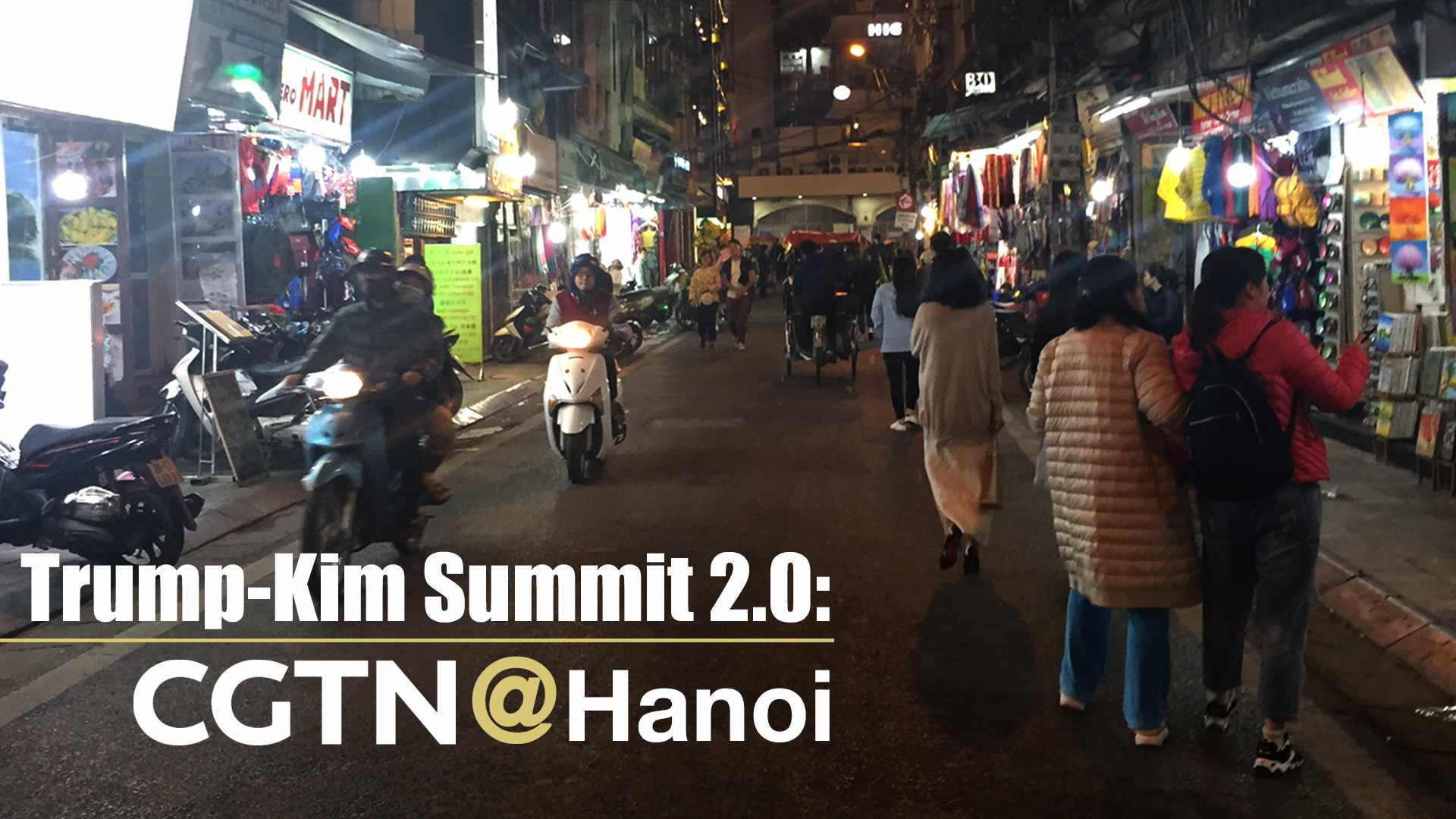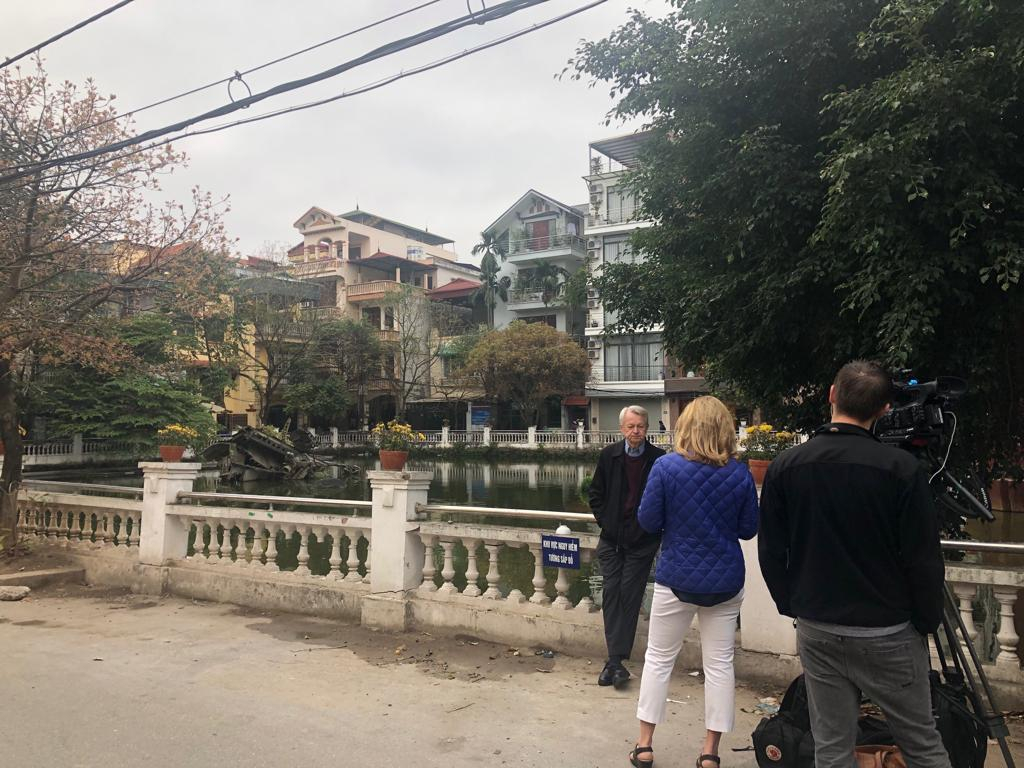
Asia Pacific
09:59, 25-Feb-2019
Reporters' Diary: First impressions of Vietnam
By Jessica Stone

Like many Americans, for me, Vietnam, is a word that evokes a war that the U.S. didn't win. It's an incredibly painful and controversial part of U.S. history. What I've discovered so far on my first visit to Vietnam is starkly different. It's hopeful.
There is an energy and a dynamism here of a fast-growing economy. The faces on the street riding those crazy motorbikes that nearly took my life this evening — they are young and vibrant. There are dozens of cranes across the skyline, and construction sites abound.
On the way to our hotel, this weekend, we drove on a road that was just built three years ago. You'd be hard-pressed to find a road that new in Washington, D.C.!

CGTN reporter Jessica Stone (C) interviews U.S. war veteran, Chuck Searcy (L), near downed B-52 wreckage in Hanoi. /CGTN Photo
CGTN reporter Jessica Stone (C) interviews U.S. war veteran, Chuck Searcy (L), near downed B-52 wreckage in Hanoi. /CGTN Photo
But there's a deeply tragic history here too. French colonial architecture from a brutal colonial period; memorials to the more than one million Vietnamese killed in the 1960's war; museums of U.S. and Russian military equipment, the downed wreckage of a B-52 airplane still protruding from a neighborhood lake as a reminder of Vietnam's victory in that conflict.
U.S. President Bill Clinton famously said in Hanoi speech in November 2000 that for Americans, Vietnam would no longer be a war, but a country.
I saw so many foreign faces here over the weekend — many of them American. That, too, is certainly hopeful.
And while there are so far low expectations of progress from the upcoming summit between Kim Jong Un and Donald Trump, the same cannot be said for the city that's hosting it.
2331km

SITEMAP
Copyright © 2018 CGTN. Beijing ICP prepared NO.16065310-3
Copyright © 2018 CGTN. Beijing ICP prepared NO.16065310-3